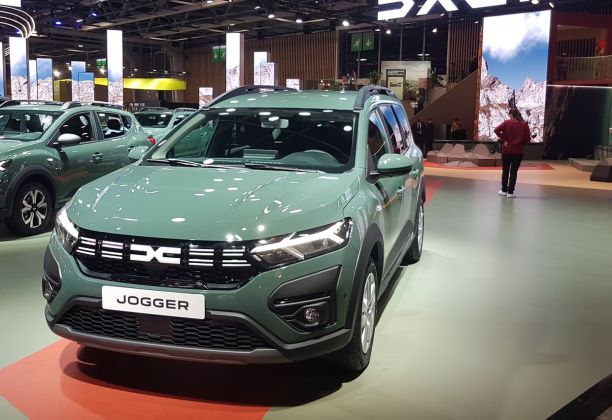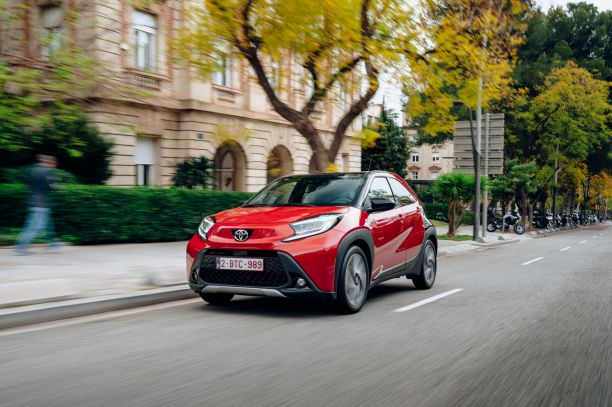
Little by little, Toyota’s reluctance towards 100% battery-electric vehicles seems to be fading away. The Japanese brand unveiled a range of 11 new models without thermal engine, ranging from small SUV to outright 4×4, including a sports car or a family sedan.
It could sound like a reversal of the jacket. Until now, Toyota has emerged as one of the most cautious manufacturers about the 100% electric vehicle. To the point of having drawn the wrath of certain poorly measured environmental associations like Greenpeace, for whom the death of thermal energy is the only way to fight against global warming. But the Japanese brand seems to have changed its mind. During a major conference led by her boss Akio Toyoda, she presented no less than 13 battery electric models (BEV), including 11 that had never been shown before! With the objective of selling 3.5 million vehicles thus motorized by 2030, instead of the 2 million envisaged so far, thanks to a range comprising 30 BEV models on that date. From the biggest defender of the non-rechargeable hybrid, we can talk about a hell of a turnaround. Its premium Lexus brand will even become 100% electric in Europe, China and the United States from 2030, then everywhere else in 2035. Here is a quick overview of what the Japanese giant is preparing for us.
<<< Discover the new Toyota electric vehicles in pictures >>>
The BZ range in the spotlight

Although only the bZ4X had been officially presented, five of these novelties did not really come as a surprise. They are indeed part of the BZ range, for “Beyond Zero” (“beyond zero” in French), which had been announced by the manufacturer in 2019 by already unveiling six silhouettes. This time the manufacturer has revealed their almost final bodywork, giving a little more detail in passing. We also note that the categories are not necessarily the same and that there are currently only five models. All should be based on the same e-TNGA platform, very modular and designed only for 100% electric, with two or four wheel drive. We will find in particular a small crossover which seems very close to the recent Aygo X, and which aims for a very low power consumption: 125 Wh / km. Toyota still believes that the race for the largest battery is harmful, because of the increases in weight and costs it generates. A compact SUV, less imposing and more sporty in appearance than the bZ4X, will also be present, as will a large seven-seater SUV with a fairly cubic style. Finally, in this cohort of backpackers, there will still be a family sedan, which could compete with the Tesla Model 3.
Many other models to come

Initially promised for 2022, however, these Toyota bZs have already stolen the limelight! The brand has indeed lifted the veil on other much more unexpected novelties. Not all of them will necessarily come to Europe. We think above all of the pick-up evoking the new Tundra, clearly designed as a priority to challenge the Ford F-150 Lightning, Tesla Cybertruck, GMC Hummer EV and other Rivian R1Ts in North America. Not sure, either, that we are entitled to the “compact cruiser EV”, a 4×4 focused on the crossing, whose silhouette somewhat evokes the first Land Cruisers.


On the other hand, the “small SU EV” and the “crossover EV” already seem much better suited to our regions … even if they risk doing a little duplication with the small crossover and the compact SUV of the bZ range. The autonomous shuttle e-Palette, used during the Olympic Games in Tokyo, will for its part receive the reinforcement of two other utilities both cubic and futuristic. Finally, Toyota even unveiled a small sports car with a removable roof, which could become the descendant of the line of MR coupes and roadsters frequently imagined by the Japanese media. This is a reminder that the boss, Akio Toyoda, remains a lover of circuit driving.


Planning and characteristics still unclear
With such a show of force, Toyota seems to want to catch up at high speed in the field of 100% electric. The brand has also announced that it will invest 4 trillion yen (more than 31 billion euros) between 2022 and 2030 in this plan., including 2 trillion for the development of batteries alone. The Japanese manufacturer in particular still aims to be among the first to market solid state batteries, which promise to improve autonomy while reducing recharging times. Long defended tooth and nail by Toyota, hybrids, rechargeable or not, and fuel cell vehicles seem to be relegated to the background. Even if these two technologies will still be able to benefit from four trillion yen of investment by 2030, they will have to share them. But if the conference was not stingy with announcements, it was much more vague on the technical characteristics of the many new products unveiled and their launch date. The brand simply said that “Most of the electric Toyotas presented here are models that will come in the next few years” . This leaves the door open to many speculations.


















